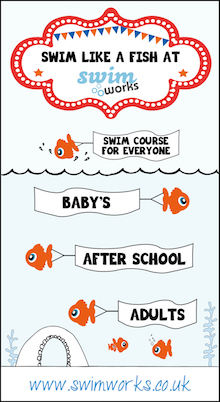It is NOT taboo anymore, and you are NOT alone anymore!
One thing has become apparent over the last few months, I have met more people that have suffered with a degree of post natal depression than haven’t. Once upon a time anything with the word ‘depression’ in it was seen as a taboo subject and a label. Times have changed. We are far more knowledgeable and have more research in 2014 than ever before.
One in ten mums suffer from PND and it is currently being suggested that this figure could rise to as many as one in seven in the coming years.
It is also suggested that many thousands of women don’t seek medical help and attempt to deal with it alone. There are many lines of help available.
As a new mum you’ll have heard a million times how “amazing” those first few weeks are, and how you will “instantly fall in love and bond” with your newborn.
So what happens when it doesn’t all happen as everyone tells you it’s going to?
Firstly.. What’s considered ‘normal’ is what’s called the baby blues. This normally starts around day 3 and can last only a few days.
Baby blues are described as :
– feeling tearful
– anxious
– irritable
These feelings are perfectly normal and are a product of the sudden change in hormones in a new Mum’s body.
If the symptoms of the baby blues don’t go away after a few days or are more severe than just a little bit of tearfulness. Then you could be suffering from post natal depression. And you wouldn’t be alone.
What is post natal depression?
(Info from NHS uk)
When you have postnatal depression, you may feel increasingly depressed and despondent. Looking after yourself or your baby may become too much. Other signs of postnatal depression are:
- anxiety
- panic attacks
- sleeplessness
- extreme tiredness
- aches and pains
- feeling generally unwell
- memory loss or being unable to concentrate
- feelings of not being able to cope
- not being able to stop crying
- loss of appetite
- feelings of hopelessness
- not being able to enjoy anything
- loss of interest in the baby
- excessive anxiety about the baby
If these symptoms sound familiar please don’t suffer alone, many cases of post natal depression can be alleviated with counselling.
Having PND does not make you a bad parent, it is an illness and can be treated as such.
Talk to a friend. Talk to your health visitor. Talk to your GP. They are all there to help you and will not judge you.
Here are some links to more information should you, or someone you care about needs some help:
PANDAS:
PANDAS is the leading UK charity in supporting families suffering from pre (antenatal) and postnatal illnesses. PANDAS vision is to support every individual, family and carer suffering with perinatal mental health illnesses. They campaign to raise awareness and remove the stigma.
http://www.pandasfoundation.org.uk
MIND:
Mental health charity providing information on a range of mental health topics. There are 180 local associations which offer support and counselling on a range of issues including postnatal depression.
Http://www.mind.org.uk
IAPT:
If you live in the Warwickshire area, many of the amazing and brave Mums on my support group highly recommend this service.
http://www.covwarkpt.nhs.uk/IAPT/Pages/default.aspx
If you have anything you would like to add to this article then please do contact us. This site is always a work in progress and we would love to hear any input you might have. Perhaps you might like to share your story? Whatever you can add, we are listening. xx








